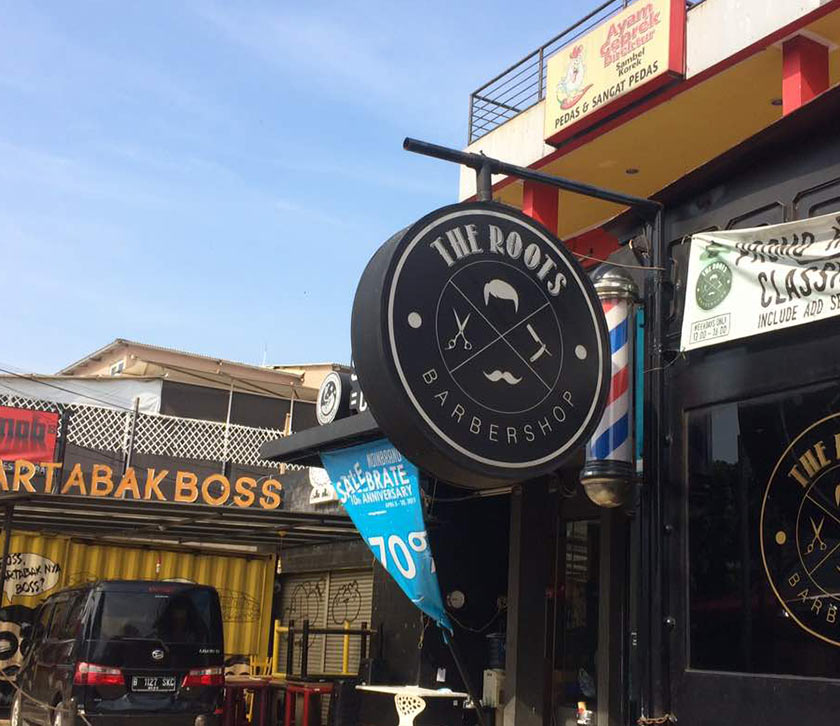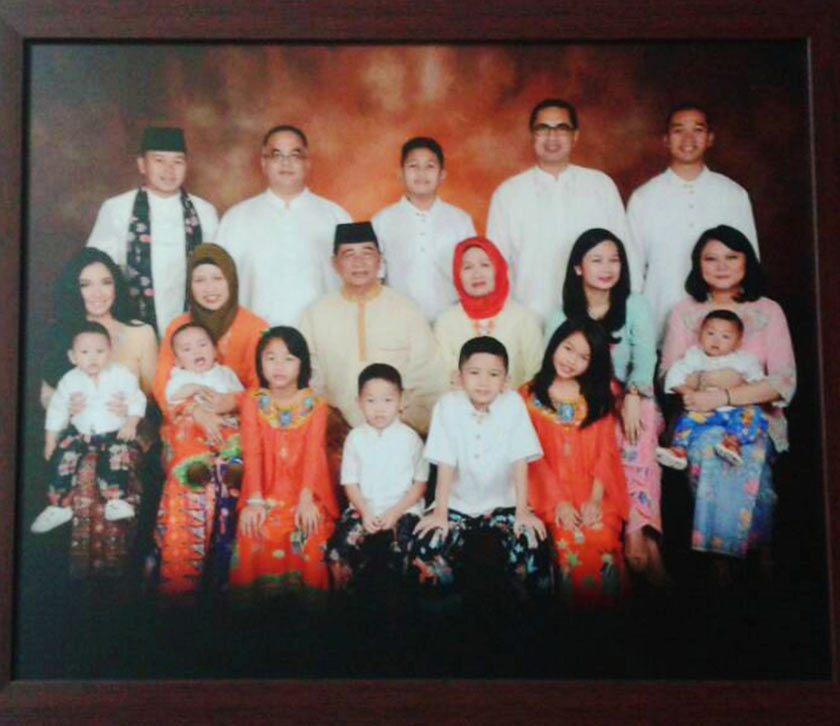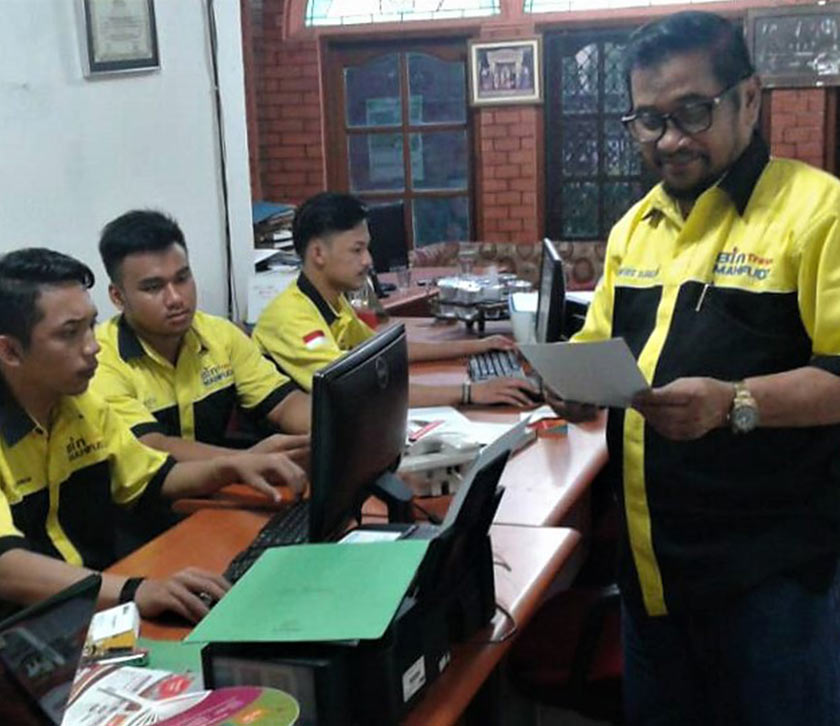Tebet is also one of the last redoubts of the Betawi – the city's original inhabitants – a staunchly conservative community who were amongst the area's first settlers.
Back in the early sixties, thousands more Betawi were relocated from Senayan as President Sukarno set out to build a sports hub.
Half a century ago – Tebet used to be a hilly and heavily-wooded area, so isolated and impoverished that it was said that even the djins (spirits) wouldn't want to go there.
In the intervening years, apart from odd patch of parkland, Tebet has filled up. Two hundred thousand people now live in an area of just under ten square kilometres: the quintessential urban kampung (village).

With only a handful of high-rise buildings, Tebet is a maze of streets, lanes and tiny walk-ways and in rush hour the traffic – from gleaming sedans to delivery trucks, motorized rickshaws, motorbike taxis and hand-held carts is nigh impenetrable.
On 14 April 2017 – just five days before voting – Djarot Saiful Hidayat, Ahok's running-mate headed to the Jami Al-Atiq mosque for Friday prayers. Located between the Ciliwung River and a busy railway line, the housing around the mosque is amongst the most densely packed in Tebet. What happened subsequently has been subject to much media controversy.
Djarot prayed alongside the congregation and was on his way out, stopping to chat and take “selfies" when it was alleged that the mosque’s managers suddenly began urging the congregation not to vote for a non-Muslim leader. This has been a key attack point against Ahok throughout the divisive campaign.
Indeed, Ahok is facing a tortuous blasphemy trial (which many see as unfair) for allegedly making disparaging remarks about the Quran.
Meanwhile back in Tebet, people started proclaiming their support for Anies, at which point Djarot left. Within minutes, the incident went viral on social media.
There were claims that Djarot had been "chased out” of the mosque. This was then used to stress how Jakarta had been almost poisoned by the Gubernatorial contest and its anti-Chinese, anti-Christian sentiment. Curiously, the South Jakarta police later issued a statement clarifying that Djarot was not kicked-out per se, although certain individuals had been cat-calling him.
The news reports of the incident caught my attention, especially since Tebet had also developed a reputation (at least since Reformasi) as a centre for indie boutiques (“distros”), hipster cafes and restaurants drawing in revellers from across Jakarta. Indeed, despite all the
inflamed emotions surrounding the election, "Bloop" one of the area's best-known distros was buzzing with teenage buyers checking out the specially designed Tshirts and hoodies.
I hence went there to understand more about the mood on the ground. Was the mainstream media narrative – that the extremists were taking over the city and challenging its hard-won reputation for moderation and diversity – accurate? Was this electoral contest a straightforward struggle between good (Ahok) and bad (Anies)?

Understandably, the mosque and its congregation weren't willing to talk, forcing me to search for clues elsewhere. This led me in turn to the pulsing heart of Tebet Dalam – with its funky shops, its fried duck stalls and a travel agency specializing in Umrah and Hajj tours run by Mahfudz Djaelani, a bearded seventy-year-old Betawi community leader and former parliamentarian.
Pak Mahfudz has a wonderfully rasping voice, not unlike Marlon Brando’s Don Corleone, albeit shorn of the malevolence. Cackling, he outlined his views on the contest: "For the Betawi, religion (Islam) comes first but that doesn't mean we don't accept people of other faiths: I have many Christian neighbours, Chinese and Batak. It's about the way you approach others –“ngewongkekan” (a Javanese expression that broadly means to treat people humanely).
"Yes Tebet voted against Ahok, but it's wrong to think that it was just because he was Christian. For many people, another factor was his behaviour. Many found him offensive and arrogant. With the Betawi, culture and manners are also very important."

According to Pak Mahfouz, the Betawi are straightforward people: a good turn to them will be returned tenfold, while a bad one will be repaid twenty-score! This got me thinking: there's no doubt that Anies benefited enormously from the anti-Chinese sentiment. This is something that Anies, as a leader must work hard to redress.
But there were other factors at work: like it or not, voters in Indonesia like their politicians to be cultured and nuanced.
Ahok – with his tough-talking Sumatran background enthralled and appalled people with equal measure. Whilst there is no doubt that he was a trailblazer for Indonesia’s minorities, his failure to moderate his behaviour made it easier for his enemies to attack him.
Moreover, his policies – including controversial slum clearances – while popular with the middle-class, drove underprivileged voters to his rivals. So yes, religion was crucial in the Jakarta elections, but so were the issues of personality and policies.
This also works both ways: Anies must find a way to break the cycle of inequality for the many “wong cilik” (or little people) who have propelled him to power. Failure to do so will see him share Ahok’s fate regardless of his piety.



























